Brainfood – on to maximum productivity
Brainfood means ‘food for the brain’. But what does it actually mean? Does our brain have certain demands on what we eat? Can we perhaps even eat ourselves smart? In fact, nutrition has a significant influence on our mental performance. We can’t influence our intelligence with it, but we can make sure that the brain has the best conditions to develop its full potential. Brainfood improves our concentration, attention and resistance to stress, enabling us to work more efficiently and with greater focus.
Below you will get a brief overview of the most important brainfood foods and how you can easily incorporate them into your everyday life.

Not only eating, but also drinking is important for our brain. A balanced fluid intake is crucial for our ability to concentrate. About 1.5-2 l of fluid in the form of water, tea or highly watered down juice should be consumed daily. A lack of water quickly leads to fatigue, headaches or concentration problems. To make sure you don’t forget to drink, always keep a full water bottle at your desk and use an alarm clock or drinking app to be reminded to drink when needed.
To work optimally, our brain needs constant energy in the form of sugar. To ensure this, the blood sugar level must be kept within the target range. You can achieve this by eating regular, balanced meals. Three main meals are best, with one or two brainfood snacks in between if needed. The main meals should contain complex carbohydrates, sufficient protein, high-quality fats as well as vitamins and minerals.
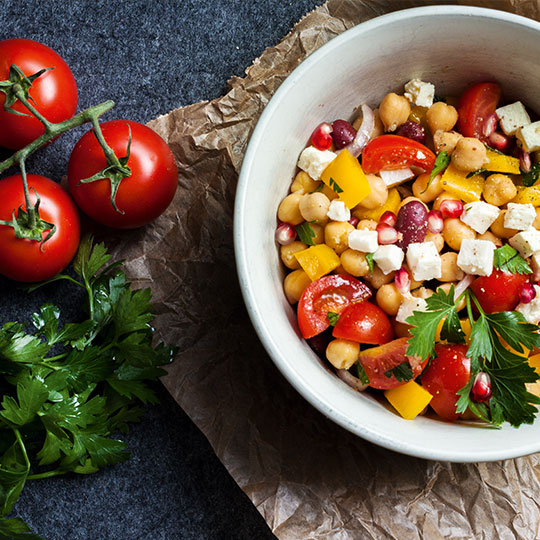
Many people don’t realize how much the brain and mental performance are affected by proper nutrition. A varied and well-balanced diet helps you to remain productive despite stressful phases and to be better equipped to cope with stress. When preparing your meals, you should consider the following recommendations:
In addition to the right combination of nutrients, it is also important in what quantities you eat them. Use the plate model as a guide:
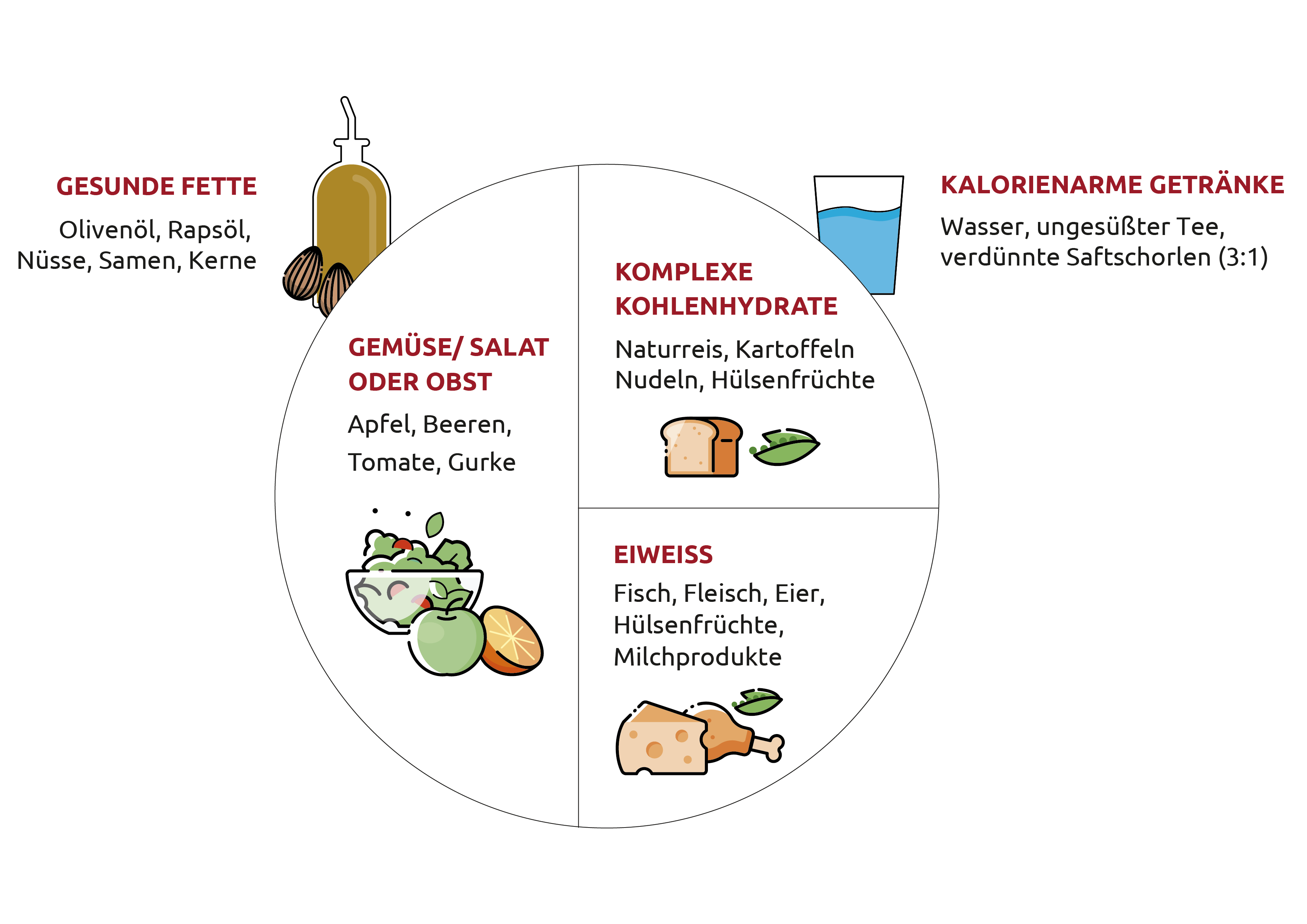
Model 1:
Model 2:
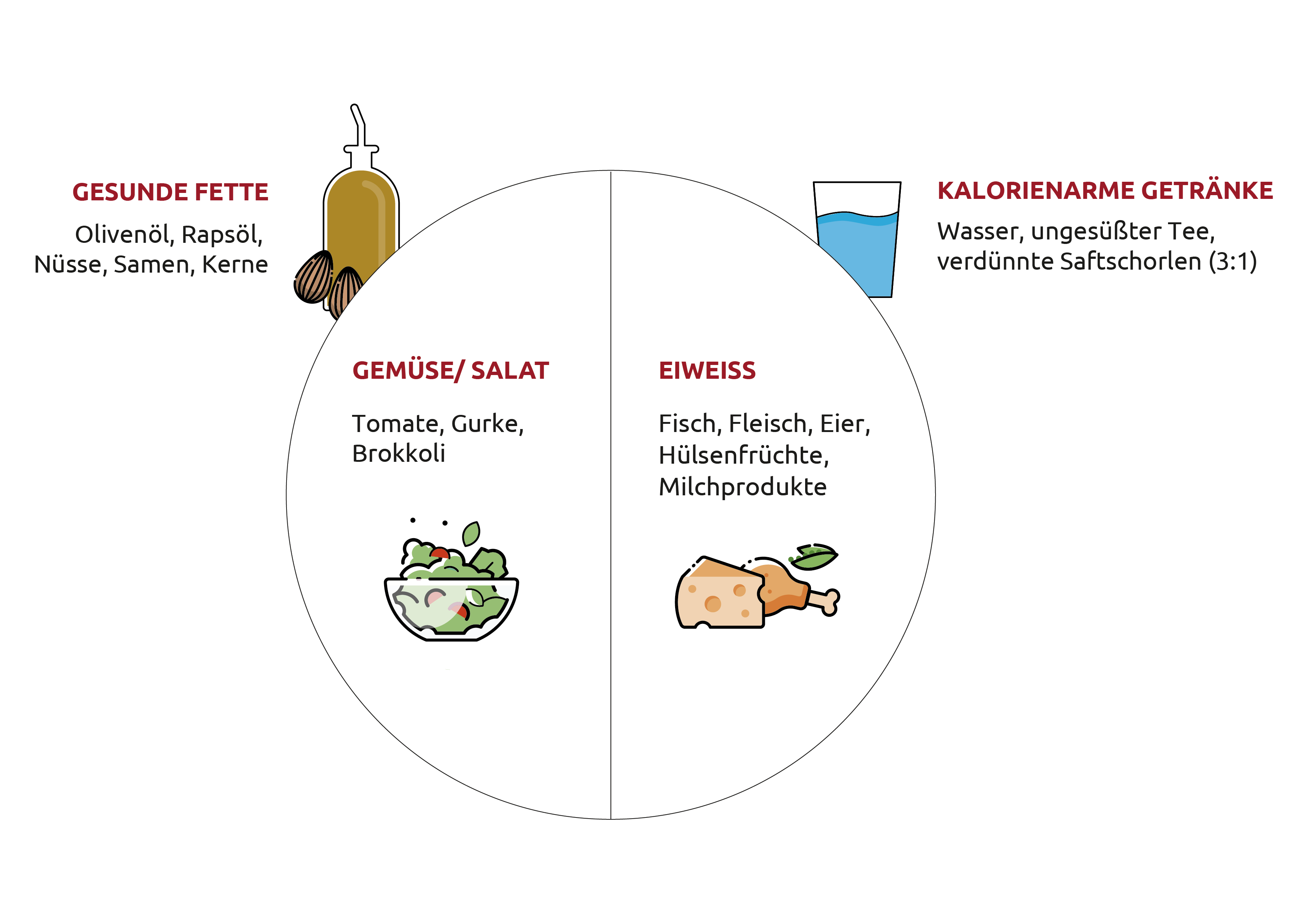
Trail mix, vegetable sticks or homemade fruit curd are suitable as snacks. High-sugar snacks in the form of chocolate, gummy bears or cakes are not recommended, as they cause the blood sugar level to go on a roller coaster, causing alternating performance highs and lows. HERE you will find delicious brainfood recipes that you can implement easily and without much effort.
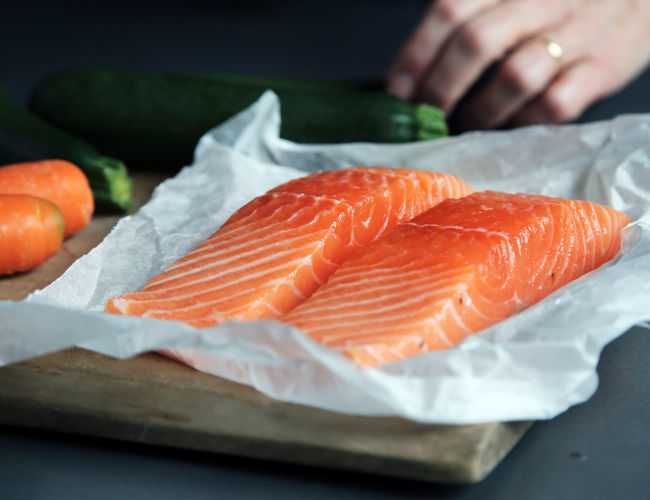
Among fats, there are better ones and worse ones. The better fats include omega-3 essential fatty acids. They are known to boost concentration and improve our mood. A very good source of omega-3 fatty acids is fatty sea fish such as salmon, tuna, mackerel or herring. To ensure an adequate supply of omega-3 fatty fish should be on the table at least twice a week. Plant-based foods such as flaxseed, chia seeds or walnuts also contain omega-3 fatty acids, however the body can only use this form to a very limited extent. If fresh fish is hard to come by, buy the frozen variety. This will also ensure that you always have fish in stock at home.
Our brain needs protein to build brain cells and exchange information between cells. To meet daily needs, every meal should include a protein-rich food. Protein-rich foods include dairy products such as yogurt, coattage cheese or cheese, legumes, fish, meat and eggs.
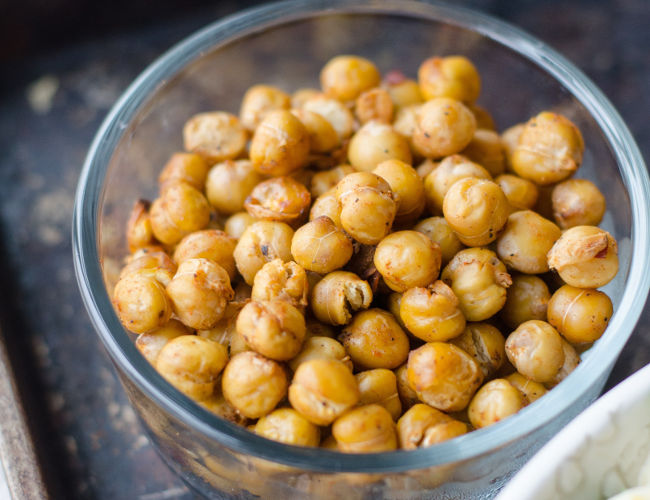

Our metabolism follows a biorhythm, which means we need different nutrients at different times of the day. In the morning and at lunchtime, we need energy and vital substances to be able to do our work. The focus is on complex carbohydrates, vegetables and fruit. In the evening, we come to rest and the body begins to regenerate. For this, we primarily need high-quality protein in combination with nutrient-rich vegetables and high-quality fats. Carbohydrates tend to have a stressful effect in the evening, unless you have a very physically active lifestyle and therefore have an increased need for carbohydrates.